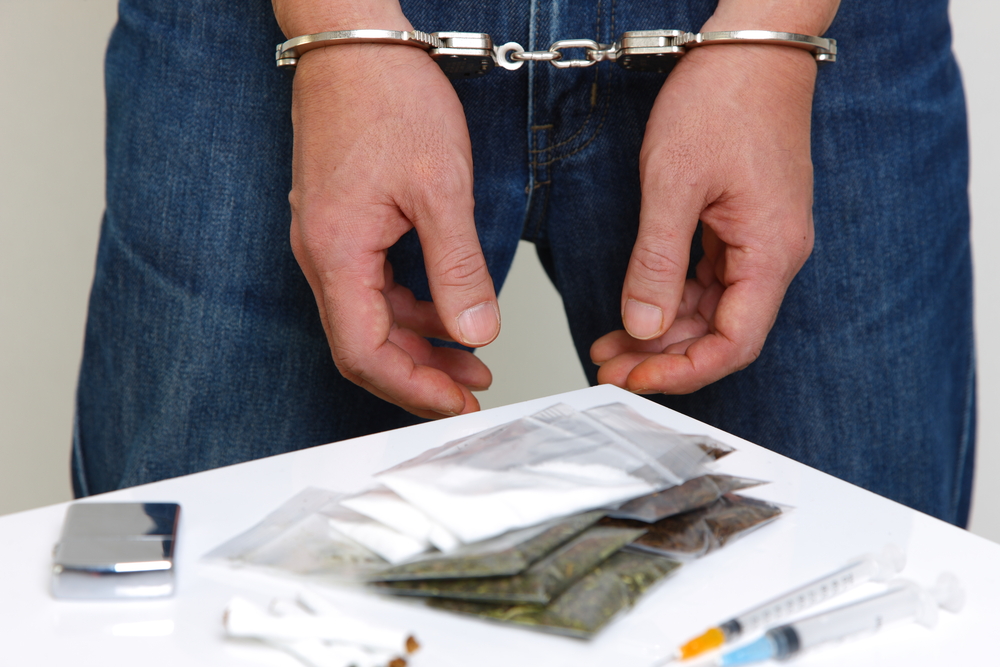Texas has some of the strictest laws when it comes to drug crimes, and severe penalties can be imposed for even drug possession. So, it shouldn’t be a surprise to anyone that the Texas drug possession laws are complicated. In fact, many Texas criminal defense attorneys answer more questions about crimes related to drug possession than any other type of charge. There are many questions related to drug crimes that are commonly asked, but they only scratch the surface. To really understand these legal issues, you should speak to a qualified criminal attorney in Corpus Christi, Texas.

According to Section 1.07(39) of the Texas Penal Code, drug possession is “the actual care, custody, control, or management of a controlled substance.” This definition has been intentionally left broad, so it can go beyond cases where a defendant has been arrested while being in close proximity to the substance in question. While “care and custody” imply proximity, adding the words “control and management” suggests that it’s not required to be charged with drug possession in the State of Texas.
While some neighboring states (such as Oklahoma and Arkansas) have passed marijuana reforms, Texas continues to outlaw marijuana possession for both medical and recreational purposes. It’s also illegal to possess any part of the Cannabis Sativa plant, whether it’s alive or dead. This can include dried leaves, shredded buds, or even seeds.
There’s no guarantee that a drug conviction won’t affect your employment status. Many employers see a conviction of a drug crime to be grounds for immediate termination, and you may have trouble getting a new job with a drug conviction on your record. Most employers run background checks on anyone applying for a position. And in many cases, being convicted of a drug crime can cost you the job.
Every college is different. Many of them will enroll people with criminal records, but it’s never a guarantee. Most universities have a “code of conduct,” so it’s possible that being convicted of a drug crime could cause you to become suspended or even expelled. Your application could also be denied because of your criminal record.
Like many employment opportunities, being convicted of a drug crime could limit your options when it comes to housing. Landlords have the right to run a criminal background check on prospective renters, and it’s their prerogative to deny your application because of a drug crimes conviction.
It depends on the circumstances. No officer can search a car for no specific reason. And if he or she has illegally searched your vehicle, the evidence may not be included in your trial. There are four situations when an officer can search your vehicle:
– You consented to the search.
– You have been arrested at the time.
– The officer believes the search is necessary to stop any potential dangers or threats.
– The officer has “probable cause” to perform a warrantless search.
Be sure to speak to a qualified attorney for more information.
According to the Texas Department of Public Safety (DPS), your driver’s license will be suspended for 180 days if you have been convicted of a drug crime. You may also have to complete a 15-hour class in an authorized Drug Education Program, pay a $100 reinstatement fee (in addition to any other outstanding fees), and get a Financial Responsibility Certificate (SR-22) from an authorized insurance company that must be kept for two years after the date of your conviction. If you didn’t have a driver’s license when you were convicted of the drug crime, you may not be able to get a driver’s license for 180 days.
While a DWI charge is commonly associated with alcohol, you can face penalties for this crime if you were under the influence of drugs. According to the Texas Penal Code, you’re considered intoxicated if you have an alcohol concentration of 0.08 or more but also if you weren’t in control of your mental and physical faculties because of alcohol, a controlled substance, or a combination of the two. If a police officer believes that a driver is under the influence of drugs, a “drug recognition expert” will be asked to complete a series of tests to find out if drugs were the reason for your impairment.
Texas Law separates drugs into five different groups, which are called “schedules.” And it closely follows the Federal Controlled Substances Act. These categories put drugs into various groups according to its recognized value in medical use (or lack thereof), its potential for addiction and abuse, as well as various categories related to drug effects.
The Texas Controlled Substances Act references the following list of illegal controlled substances:
– Schedule I — Substances that have been found to have no medical use and are considered to be very addictive.
– Schedule II — Substances that are believed to have some medical use but have a substantial risk for addiction or abuse.
– Schedule III — Substances that have medical uses but are also subject to recreational abuse with the potential for addiction.
– Schedule IV — Substances that are generally prescribed for medical use but also have a risk for abuse.
– Schedule V — Substances that are considered to be the least dangerous but have some potential for abuse.
The law has other references for various controlled substances, so be sure to speak to a qualified attorney for more information.
Some of the possible defenses for drug crimes in the State of Texas can include:
– Lack of probable cause.
– Search incident to arrest.
– Improper search and seizure.
– Improper questioning.
– Unknowing possession.
– Flawed handling of evidence.
– No affirmative link to the controlled substance.
– Entrapment.
– No possession of a controlled substance.
– Lawful possession of a controlled substance.
If you have been convicted of a drug crime and are looking for one of the best criminal defense lawyers in Corpus Christi, TX, be sure to get in touch with Gale Law Group.
